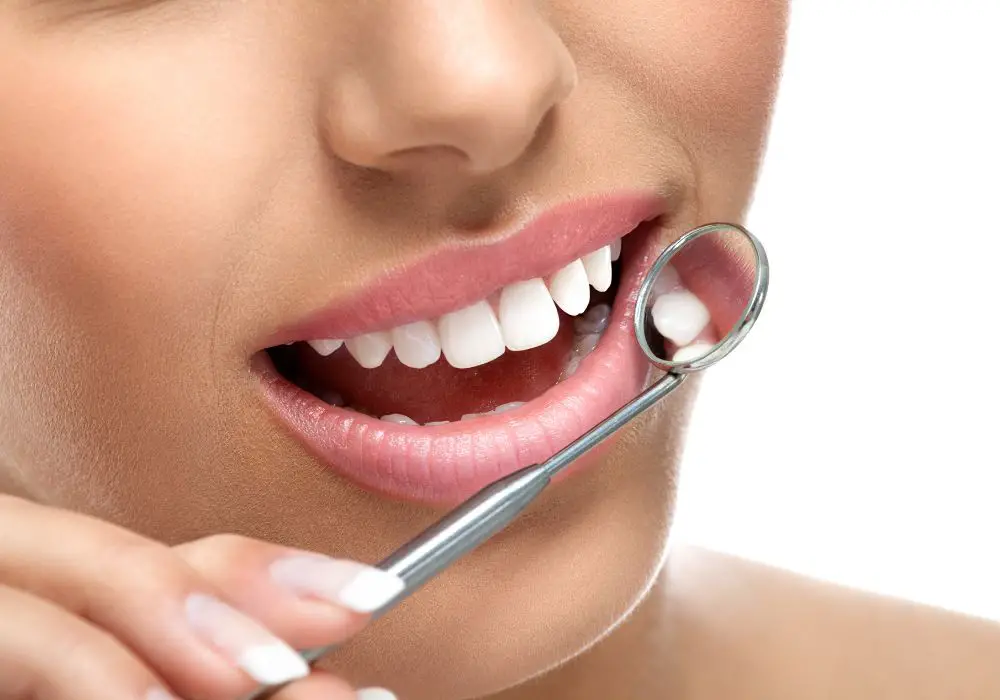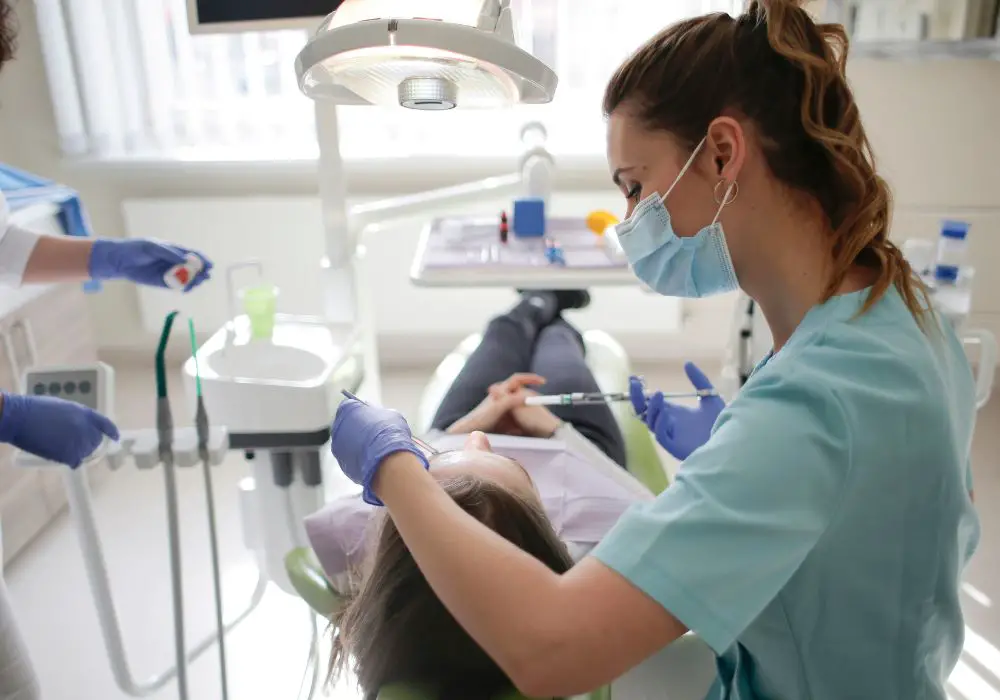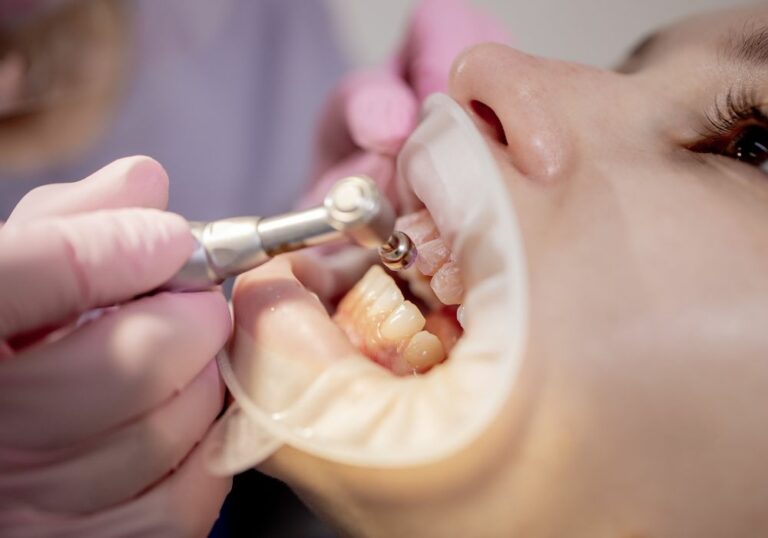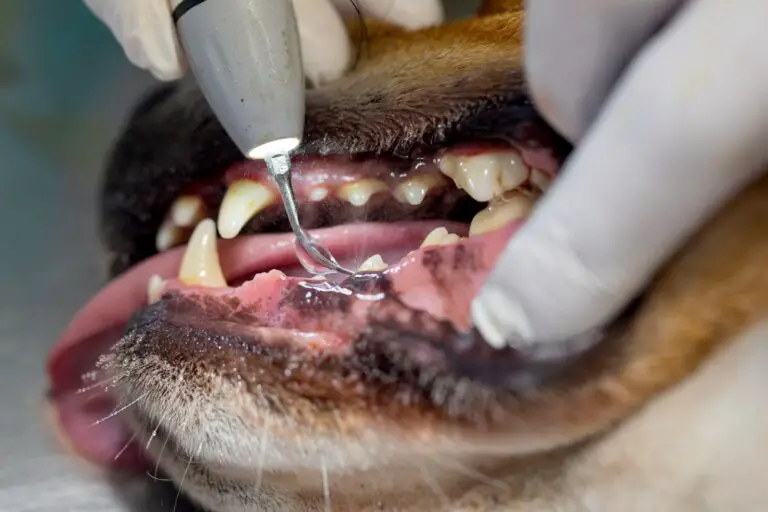The link between oral health and overall health
The health of our mouth and teeth is closely linked to the health of the rest of our body. Our oral cavity harbors billions of microbes, and problems with our oral health can allow harmful bacteria to enter the bloodstream and travel to other parts of the body. Poor oral hygiene has been associated with conditions including:
- Cardiovascular disease
- Respiratory infections
- Diabetes complications
- Rheumatoid arthritis
- Adverse pregnancy outcomes
One way poor oral health may contribute to disease is its effect on our nervous system. Let’s explore the ways your teeth and nerves interact and how dental issues can potentially impact your overall nervous system function.
Nerves in teeth connect to the brain

Our teeth are highly innervated, meaning they contain many nerves. The nerves enter the tooth through the root and extend into the pulp in the center of the tooth. From here, they communicate signals to the brain.
The main nerves supplying each tooth are:
- Superior alveolar nerves: Supply upper teeth
- Inferior alveolar nerves: Supply lower teeth
These nerves are branches of the trigeminal nerve, the largest cranial nerve which provides sensation to the face. The trigeminal nerve has three main branches:
- Ophthalmic nerve: Sensory to upper face
- Maxillary nerve: Sensory to mid face
- Mandibular nerve: Sensory to lower face
The maxillary and mandibular branches carry signals from the upper and lower teeth respectively to the trigeminal nerve. From here, signals are relayed to the trigeminal ganglion and finally to the brainstem.
This neural network allows you to feel sensation in your teeth and allows your brain to perceive stimuli like temperature, pressure, and pain from your teeth.
Dental issues can cause nerve pain and inflammation
Problems with your teeth frequently cause inflammation or damage to these nerves, leading to dental nerve pain. Common sources of dental nerve pain include:
- Dental caries: Cavities irritate nerves in the pulp
- Pulpitis: Inflammation of the pulp
- Abscesses: Infection around tooth roots compress nerves
- Cracked teeth: Nerves exposed to air/liquids
- Facial trauma: Nerves damaged by knocked out/broken teeth
This dental nerve irritation can be extremely painful. The trigeminal nerves convey sharp, shooting pain signals that are often felt as headaches, facial pain, jaw pain, or toothaches.
Dental issues may also lead to chronic inflammation of the trigeminal nerve branches, known as peripheral neuritis. Inflammation can make nerve trunks more sensitive, causing heightened responses to stimuli. This can make dental work, chewing, or talking exacerbate nerve pain.
Referred pain from dental problems

The trigeminal network means dental nerve pain is often referred to other areas on the face. Referred pain means you feel pain in an area away from the actual injury site. This happens because signals from different regions converge on the same nerve fibers.
Common patterns of referred pain from dental issues include:
- Maxillary teeth: Pain referred to cheeks, sinuses, ears, temples
- Mandibular teeth: Pain referred to jaw, chin, neck, shoulders
For example, a problem with a lower molar can cause pain in the jaw joint. This makes it hard to determine the exact problematic tooth. Dentists use various tests to isolate the tooth causing referred pain.
Dental procedures may injure nerves
Certain dental treatments also carry a risk of dental nerve damage. This includes:
- Tooth extractions: Removal may damage surrounding nerves
- Root canals: Irritation close to nerve trunks
- Dental implants: Drilling can compress nerves
- Oral surgery: Nerves may be cut or stretched
This dental nerve damage can cause various neurosensory disturbances like pain, numbness, or tingling. Nerve injuries from dental work can be minor and temporary, or in rare cases become permanent. Gentle handling of tissue helps minimize nerve damage during procedures.
Local vs general anesthesia

Dental anesthetics are used to numb nerves and block pain during treatments. There are two main types:
- Local anesthesia: Numb specific regions, used for minor procedures like fillings.Common examples:
- Lidocaine -Blocks sodium channels to prevent nerve signals
- Articaine – Also blocks potassium channels
- Epinephrine – Constricts blood vessels to keep anesthetic localized
- General anesthesia: Induces unconsciousness, used for major surgery. Given through IV or inhaled gases.
Anesthetics prevent painful stimuli signals from reaching the brain. However, they do not treat the underlying inflammation or nerve damage. This is why you may still feel dental pain as the numbing wears off.
Impact on the autonomic system
The trigeminal nerve forms connections with the autonomic nervous system – the network controlling involuntary functions like:
- Heart rate
- Breathing
- Digestion
- Blood pressure
This is why dental pain and inflammation may cause wider symptoms like:
- Headaches: From trigeminal autonomic reflex
- Slowed heart rate: Linked to cranial nerve X, the vagus nerve
- High blood pressure: Stress response
Conversely, medications used to manage dental nerve pain like NSAIDs and opiates may have side effects like digestive issues.
This demonstrates the wide-reaching effects dental nerve issues can have on our overall nervous system function and health.
Treating dental nerve pain
If you experience any dental nerve pain, it’s important to see your dentist promptly. Leaving issues like cavities and abscesses untreated allows more severe nerve inflammation and infection to develop.
Common treatments for dental nerve pain include:
- Treating the source: Fillings, root canals, extractions to address decay and inflammation. Local anesthesia is used to keep you comfortable during procedures.
- Medications: Anti-inflammatories (NSAIDs, steroids), antibiotics for infection, analgesic opioids in severe cases.
- Nerve blocks: Injections of anesthetics directly into nerves to numb for prolonged periods. Used for acute pain like irreversible pulpitis.
- TENS therapy: Small electrical pulses disrupt pain signal transmission.
- Alternative therapies: Acupuncture, stress reduction, ice/heat therapy.
The nerves in our teeth serve an important role in sensory function. Any damage or inflammation of these nerves can significantly impact oral health and quality of life. Seeking prompt dental treatment is key to resolving issues and preventing chronic trigeminal nerve pain. Protecting your dental health through brushing, flossing and regular dental checkups can help avoid many painful problems.
Frequently Asked Questions
Can a cavity cause headaches?
Yes, cavities and other dental issues like abscesses and cracked teeth can sometimes cause headaches. Dental pain is referred along the trigeminal nerve branches to the face and head, where it is often felt as headaches. Treating the source of the dental problem will help resolve headache pain.
Why do I feel jaw and neck pain from a tooth problem?
A single tooth issue can radiate pain across the jaw and into the neck due to convergence of nerves on the trigeminal pathway. Lower teeth especially can refer pain to the jaw joint (TMJ) and muscles used for chewing. This is the mechanism behind referred dental pain. Seeing a dentist will help diagnose which tooth is the problem.
Is numbness after a filling permanent?
It is common to experience temporary numbness or tingling after a dental filling, especially when anesthetic was used. This usually resolves within several hours as the anesthetic wears off. Persistent numbness past 48 hours or numbness accompanied by other symptoms may indicate dental nerve injury and you should promptly follow up with your dentist.
Can poor dental care cause cardiovascular disease?
Yes, research shows poor oral hygiene and dental infections significantly raise your risk of cardiovascular diseases like atherosclerosis and heart attacks. Bacteria from gum disease enter the bloodstream and can damage blood vessels or attach to plaque in arteries. Managing conditions like gum disease helps lower cardiovascular risk.
Why does my tooth hurt when I touch my face?
Having a sore tooth that hurts when you press on your face is most often a sign of pulpitis or a dental abscess putting pressure on the nerves. Even light stimulation of your face and indirect pressure on the tooth can cause throbbing pain. It’s a key sign to see your dentist promptly for treatment before the infection spreads.






